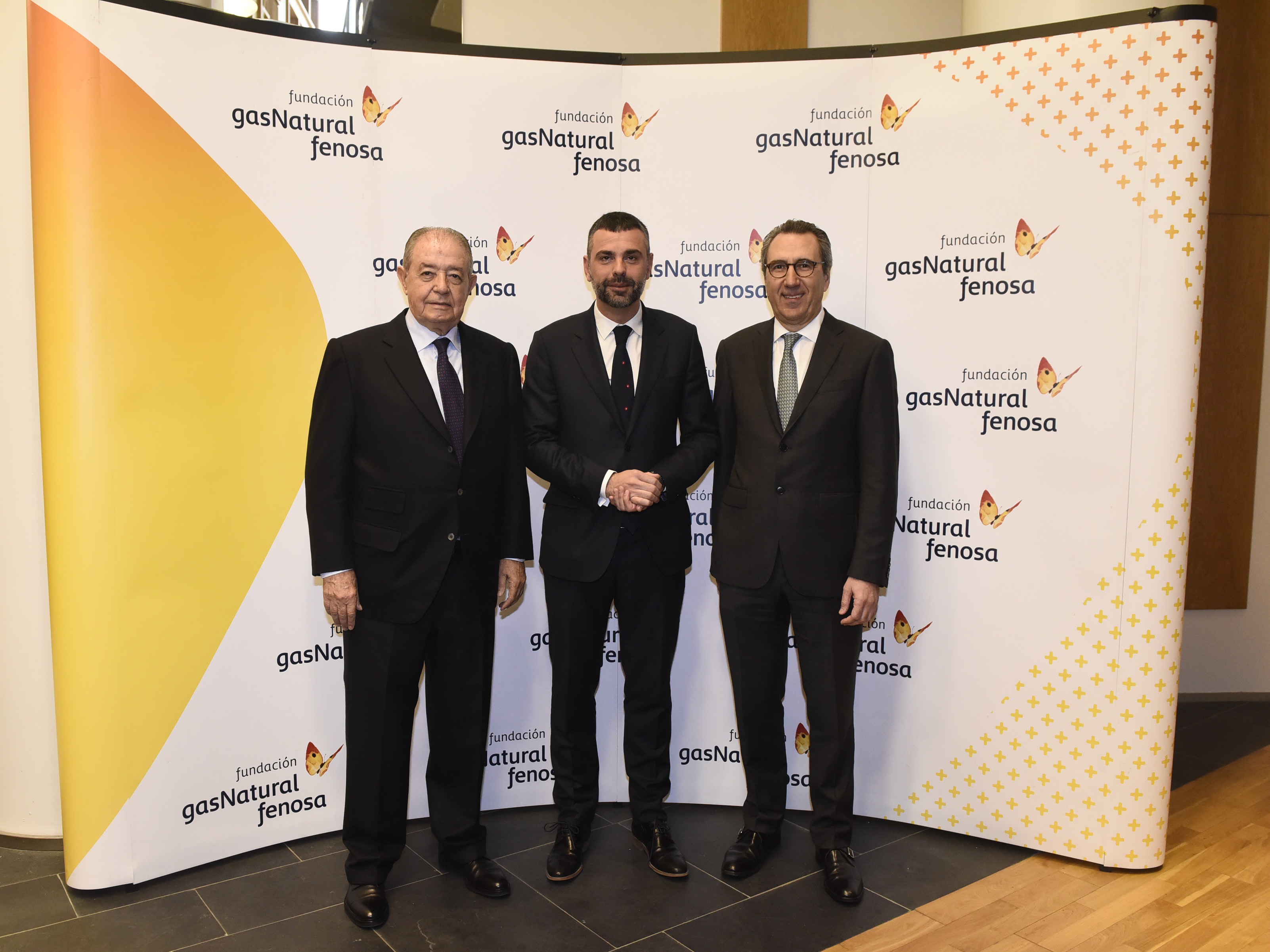Gas Natural Fenosa Foundation discusses energy efficiency as environmental quality tool in Barcelona
At a seminar organised today in collaboration with the Department of Regional Affairs and Sustainability of the Regional Government of Catalonia, the Gas Natural Fenosa Foundation discussed the role played by energy efficiency in emissions reduction.
Various speakers debated the current status of the process to transpose European Directive 2012/27/EU on energy efficiency and how it will boost the economy.

In Barcelona earlier today, the Councillor for Regional Affairs and Sustainability of the Regional Government of Catalonia, Santi Vila, and the Managing Director of the Gas Natural Fenosa Foundation, Martí Solà, opened the seminar entitled Energy Efficiency as an Environmental Quality Tool. Transposition of European Directive 2012/27/EU. The event, which was attended by over 140 professionals from companies, engineering firms, universities and public authorities, was closed by the Director of the Catalan Energy Institute (ICEAN), Mercè Rius.
During the course of the event, experts analysed the economic opportunities entailed by the transposition of this directive, which sets specific actions for promoting energy efficiency and reducing emissions by 20% throughout the Member States by 2020.
The President of the Spanish Energy Efficiency Technology Platform, Rocío Fernández Artime, said that energy efficiency in the European Union in the period 1990-2014 rose by 20% at a rate of 1.1% per year, boosted by improvements in the industrial and residential sectors. She went on to say that Spain could allocate over 10 billion euros from European funds to the energy-related refurbishment of buildings between now and 2020.
Similarly, the architect from the Higher Council of Official Associations of Architects of Spain (CSCAE), Gloria Gómez, explained that, according to the long-term strategy for energy-related refurbishment in the Spanish building sector, over 350,000 properties will be refurbished in this period, which will represent an energy saving of over 1,000 KTOE (thousands of tonnes of oil equivalent) and a 2.6 million tonne reduction in CO2.
GAS NATURAL FENOSA's Regulation Area Representative, Ester Sevilla, explained that the transposition of Article 7 of the Directive forces energy marketing companies to implement saving actions equivalent to 1.5% of their annual energy sales. For the period 2014-2020, a minimum savings target of 15,979 KTOE has been set in Spain. She went on to say that, at the moment, the only option for meeting the targets set for energy marketing companies is financial contribution to the National Energy Efficiency Fund.
Energy efficiency in transport
The Technical Director of Transports Metropolitans de Barcelona (TMB), Francesc González Balmas, explained that the transport sector represents 30% of energy consumption in the European Union and 43% in Spain, meaning it is important to act on this sector in order to achieve the overall targets set by the 20/20/20 protocol and the successive protocols for 2030 and 2050. The EU directives that govern motor cars plan for a greenhouse gas emission reduction close to 50% in 2020 on the benchmark 1990 figures, which will need to increase to 80-85% looking ahead to 2050.
Energy efficiency and climate change
The Director of the Catalan Climate Change Office of the Regional Government of Catalonia, Salvador Samitier, explained that data from the European Environment Agency (EEA) indicate that the European Union as a whole could achieve the 20% reduction target for final and primary energy consumption by 2020. The primary energy consumption reduction achieved by the EU to date (8.3% in 2013 on 2005) is the result of implementing energy efficiency policies but also reflects the effects of economic recession. Hence, he said it will be necessary to implement additional measures to achieve the 27% reduction set for 2030.
In turn, the Director for Companies of the Barcelona Regional Department of CaixaBank, Carlos Gramunt, explained the main sources of financing that currently exist for energy efficiency installations, as well as other alternatives to increase financing for these projects.
The Gas Natural Fenosa Foundation
The Gas Natural Fenosa Foundation, founded in 1992, targets its activity at the promotion of information, training and increased social awareness on improving energy efficiency and technological innovation in the field of energy while respecting and protecting the environment, and promotes cultural activities through the Gas Museum aimed at preserving and spreading knowledge about the historical and cultural heritage of the sector. It also has a programme to support exports for small and medium-sized enterprises. Its international activities are carried out in Algeria, Argentina, Brazil, Colombia, Costa Rica, Mexico, Morocco, Italy, Moldova and South Africa
Barcelona (Spain), 26 Nov 2015
Share